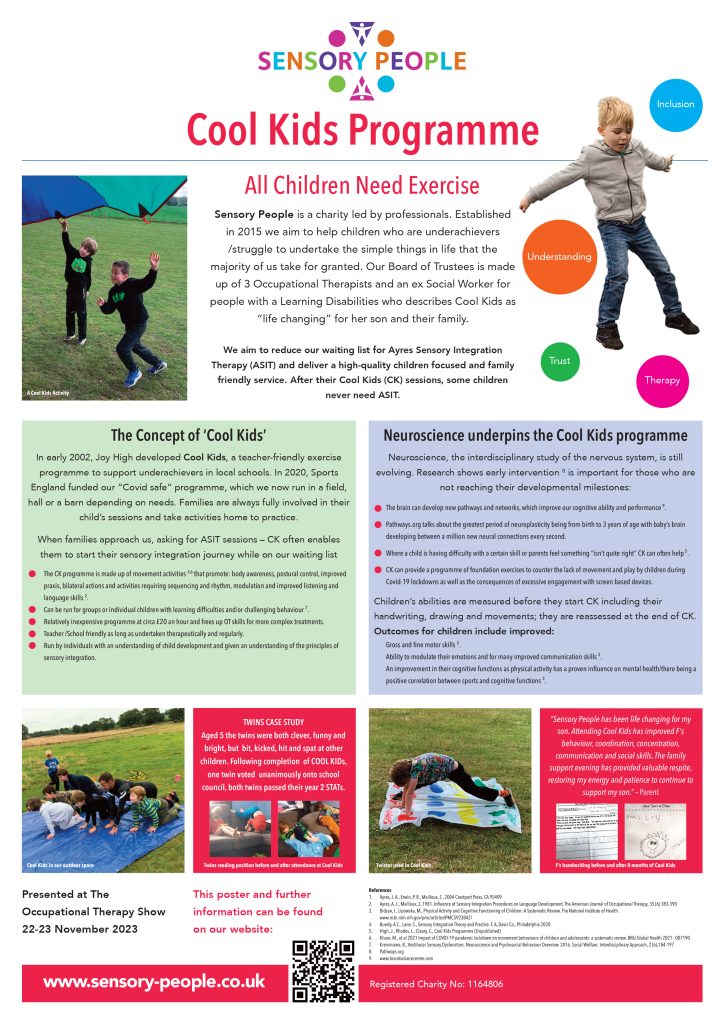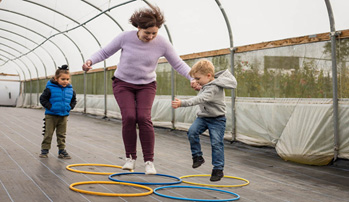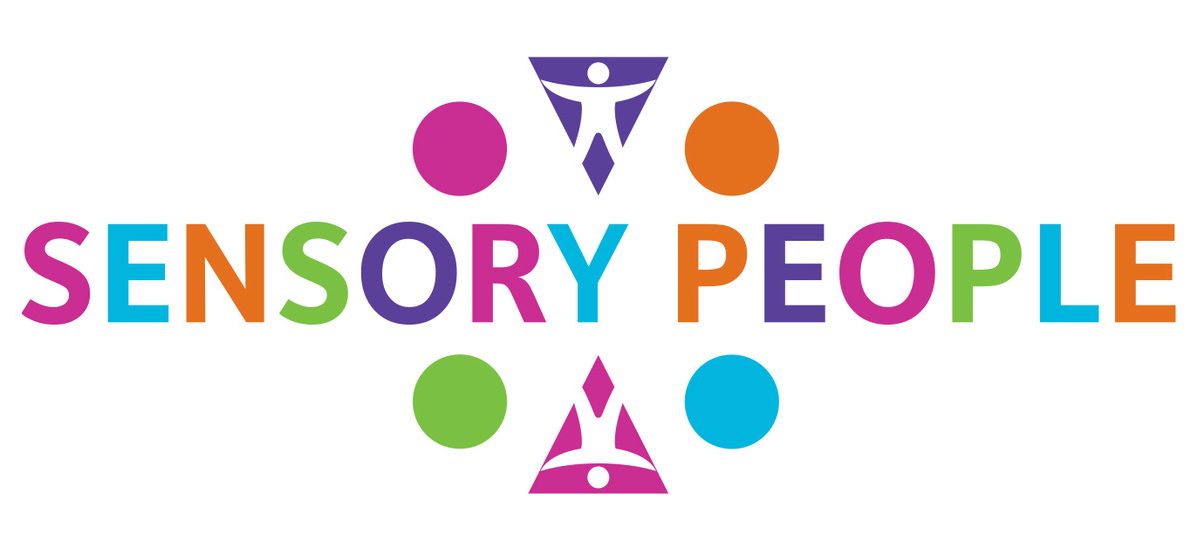
The Cool Kids programme was developed by Joy High, Head of Children’s Occupational Therapy services in Wolverhampton in 2002. It has been made available for anyone who wishes to use it by The Royal Wolverhampton Hospitals NHS Trust, Wolverhampton City PCT and Wolverhampton Local Education Authority.
Introduction
COOL KIDs was designed for use by a variety of professionals and their support staff following training by a Therapist who specialises in Sensory Integration.
Teacher’s from participating schools have commented that children:
- enjoyed the activities
- listened for longer and their concentration improved
- displayed more confident behaviour
- had better poise
- fidgeted less and kept ‘on task’ for longer
- developed better motor control.
To deliver the COOL KIDs programme effectively, facilitators must understand the programme’s underlying theory and adopt an enabling approach. Sensory People has trained and collaborated with sports and dance coaches to support successful delivery.

Aims of Cool Kids
The 25-session programme is aimed at building the motor skills of under achievers so that they can develop in physical activity and improve their ability to modulate their arousal levels. It is a structured course which helps children to catch up on their foundation skills; it takes the children through the stages of development, starting with working on their backs (supine), tummies (prone), sitting, kneeling and then standing. From then work is done on balance, bi-lateral movement (crossing over from left to right sides, and vice versa) and co-ordination. The programme may help some children who have difficulties with listening and language development as a result of arousal levels.

For some children, progress to the next stage may take longer than for others, some may therefore need to repeat activities from earlier sessions several times before moving on.
A simple assessment of the children’s physical abilities (crawling, jumping etc) and their writing and drawing (of themselves) takes place at the beginning and end of their attendance.
Where writing “Tom was very happy” may take one 6-year-old child over 7 minutes at the beginning – with lots of delaying tactics during that time and with all of the writing faint and illegible – by the end of the scheme they may be able to focus for 4 minutes and make their writing clearer. (Unfortunately, writing samples we have are so faint they do not photograph well and therefore we cannot show here)
Parents are asked to reinforce the Cool Kids programme at home – they often do that in between their home-education programme and using therapeutic putty and joint compressions as warm ups to writing, one child’s workings can be seen below after they have continued with COOL KIDs (three sessions a week) for 20 weeks.

Parents’ testimonials:
Feedback from parents taking part in COOL KIDs (guiding and helping their children) where sports coaches (under the supervision of a Sensory Integration Practitioner) have delivered the programme.
“J lacked confidence and avoided doing things that he finds difficult. Cool kids summer sensory was great for him. Although he was nervous at first, he became more confident as he realised it was very enjoyable. Everything was presented as fun and a game. He worked really hard. The things we learnt as a family were easy to take home and integrate into everyday life. I have seen him become braver in his dance classes and on walks. His favourite thing to do is to balance on logs now. The physical improvement in him has blown me away.”
“The staff were skilled at creating a safe place where my son felt happy to have a go at activities that previously he would not even have tried”
“We were very fortunate to be part of the summer COOL KIDs programme this year. We found the scheme to be a great help for us. We have 3 children who all have very different needs and helping them in a sensory way has really helped all of us. It has helped us as parents to understand and help their needs in a way we couldn’t before and it’s helped our kids seek sensory input in a more helpful way. The coaches were really helpful in explaining and showing us how to do exercises in a safe hands-off way and we had some wonderful information given to us via Marion. We saw immediate improvements in the children and have continued to do so. If our personal circumstance were different, I wouldn’t hesitate to continue to with the scheme but for us the timing isn’t right. Thank you for the help we have had from the summer scheme though.”
Cool Kids in Special Schools:
Although written for mainstream preschool and primary school aged children the Cool Kids programme has been successfully used in several schools for special needs pupils. In one school for children with moderate learning difficulties and Autism a Post Graduate Psychology student undertaking her Phd (unpublished) found that children with Autism preferred and gained better outcomes from the Cool Kids programme than they did from Aerobic exercise.
Some of the results of the 25 session Cool Kids programme undertaken in 29 weeks in this special needs school are shown below:

One child’s drawing assessed before and after the COOL KIDs programme using scales from: Draw a Person Intellectual Ability Test for Children, Adolescents and Adults Reynolds C.R. and Hickman J.A. can be seen below:

